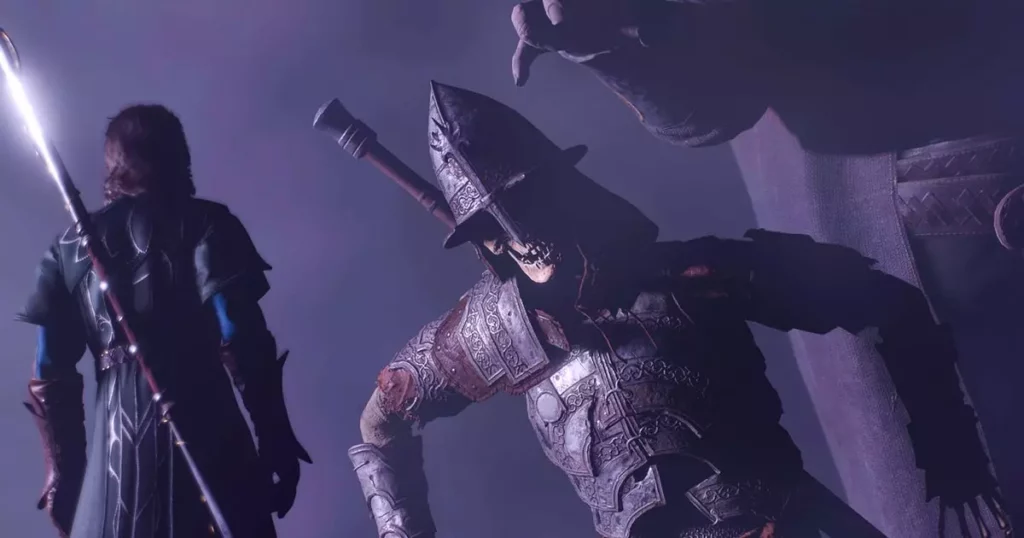The realm of video game development is often exhilarating, yet it can sour quickly, especially when promising projects fall by the wayside. Case in point: Project Dante by Hidden Path Entertainment—an endeavor that, despite its tantalizing glimpses of potential, now serves as a harbinger of disappointment and missed opportunities. The unfortunate silence following its cancellation resonates deeply within the gaming community, echoing the discontent of fans and developers alike. When a project infused with promise is abruptly stopped, the repercussions are rarely limited to a mere statistic; the human element, represented by the 44 developers left scrambling for new employment, brings a melancholic weight to the conversation. This situation raises eyebrows and concerns about the increasingly perilous landscape of video game development.
A Fractured Dream: The Rise and Fall of Project Dante
When the first footage of Project Dante surfaced, it sparked a wildfire of speculation regarding its potential to redefine Dungeons and Dragons (D&D)-inspired experiences. The glimpses into its richly designed environments, reminiscent of fantasy epics like Dragon Age, hinted at a possible shift in the landscape of RPGs. However, the panicked retreat initiated by its funding body, Wizards of the Coast, signals a deep-seated wariness about committing to ambitious projects. The industry is rife with anxiety; in the wake of Larian Studios’ sweeping success with Baldur’s Gate III, the stakes have never been higher. Developers find themselves in an arms race to deliver quality while simultaneously innovating, often leading to choices that prioritize short-term fiscal concerns over long-term visionary aspirations.
The Creative Stranglehold of Market Expectations
The cancellation of Project Dante highlights a troubling trend in the video game industry: an unwavering focus on immediate profitability stifles creativity. Wizards of the Coast’s retreat amidst soaring expectations demonstrates a reluctance to embrace risk despite their established legacy. The joy of discovering new narratives and methodologies within the gaming sphere seems increasingly overshadowed by the desire for commercial viability. For many in the industry, the harsh reality is that the pressure to deliver not only steers creative vision off-course but also limits the opportunity for groundbreaking stories that challenge the status quo. A project such as Dante, with its engaging FPS gameplay mechanics and character explorations, could have served as a bold new chapter in D&D lore. Yet, it appears that the right balance between financial viability and innovative storytelling remains elusive.
What Could Have Been: Untapped Potential
The unveiling of gameplay footage from Project Dante stirs nostalgia, evoking what could have been—a fusion of rich storytelling and deep combat mechanics, all encapsulated in a vibrant universe filled with whimsical charm. In a segment where a trio of characters battled foes, the promise of engaging interactions and intricate puzzles painted a multifaceted world that could capture players’ imaginations. As the characters engaged in strategic skirmishes and clever explorations, one could almost hear the echoes of laughter in taverns and see the sparks of camaraderie. The whimsical humor embedded within the dialogue further enriched the potential experience; a line dismissing a character’s blunders as “the thing starting to do a thing with the stuff” hints at the charm of an otherwise ordinary fantasy experience.
These elements could have differentiated Project Dante from competitors, creating a blend of adventure and levity that resonates with gamers on multiple levels. What a tragedy it is that such nuanced offerings were lost in the turmoil of corporate hesitation!
A Shared Cultural Narrative Under Siege
The demise of Project Dante resonates profoundly within a community that thrives on shared experiences and narratives. For many long-time fans of D&D, the excitement surrounding new titles evokes cherished memories of imaginative campaigns, elaborate character arcs, and fantastical adventures woven together through multiplayer interaction. Canceling projects like Dante disrupts not merely the flow of gaming experiences but also derails the collective storytelling endeavor shared among enthusiasts. Each game represents another thread in a larger tapestry, one that interconnects fans across the globe, gathering together to craft interlaced narratives that elevate the entire gaming experience.
In this increasingly fractured environment, where content often contradicts the evolving desires of avid gamers, the regret of lost opportunities becomes an emotional anchor. While aspirations might be stifled in the face of financial constraints, the essence of what makes gaming so potent remains unchanged. Abandoning creativity for the sake of comfort is a gamble that ultimately devalues the loyalty of a fanbase dying for enriching stories.
Striking a Balance: Aspirations Amidst Obstacles
The landscape of video game development, with its ever-shifting terrain, calls for a delicate balance between ambition and practicality. Hidden Path’s Project Dante serves as a potent reminder of what is at stake when visionary projects are shelved due to apprehensions about market dynamics. The palpable excitement for innovative storytelling within the realm of D&D risks being overshadowed if developers continuously avert their eyes from bold exploration. There lies a vital opportunity for the industry to not just recover from setbacks but also cultivate an environment where creative aspirations can flourish—not just for the sake of profit, but for the love of gaming itself.
In a world awash with possibilities, the question looms large: will the industry heed the lessons imparted by Project Dante, or will the cycle of ambition deferred continue to trap creators within a void of missed potential?









Leave a Reply